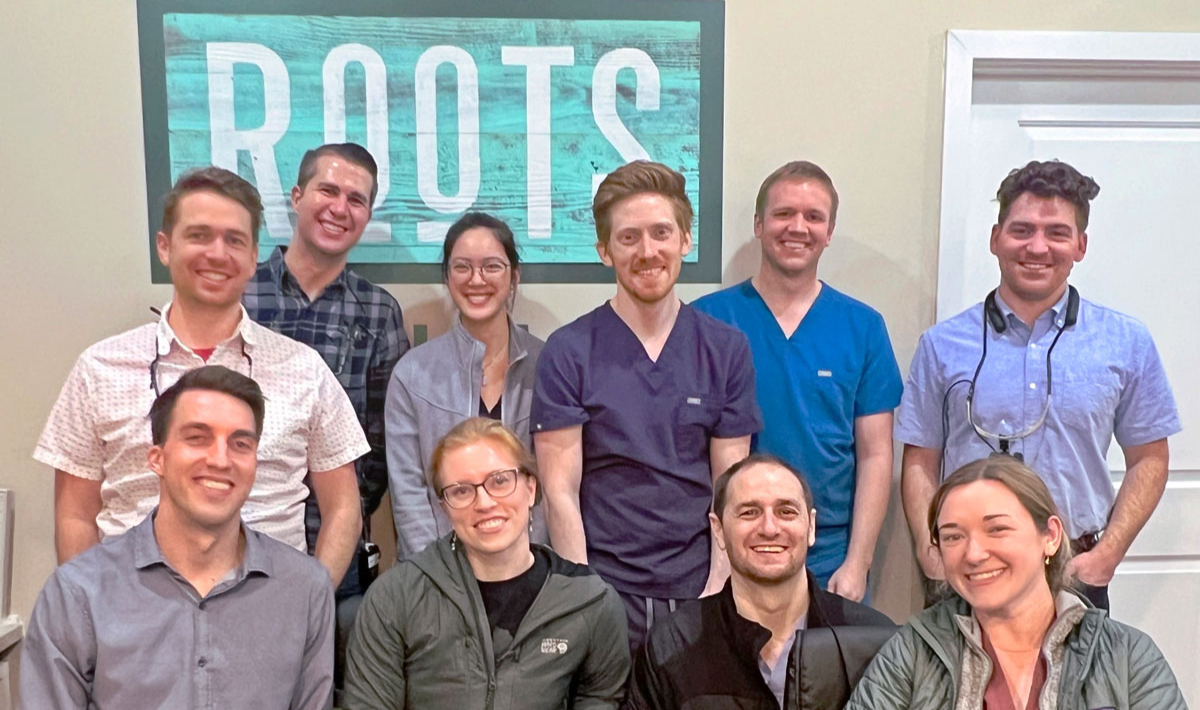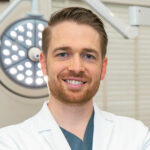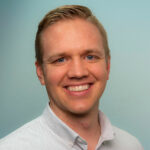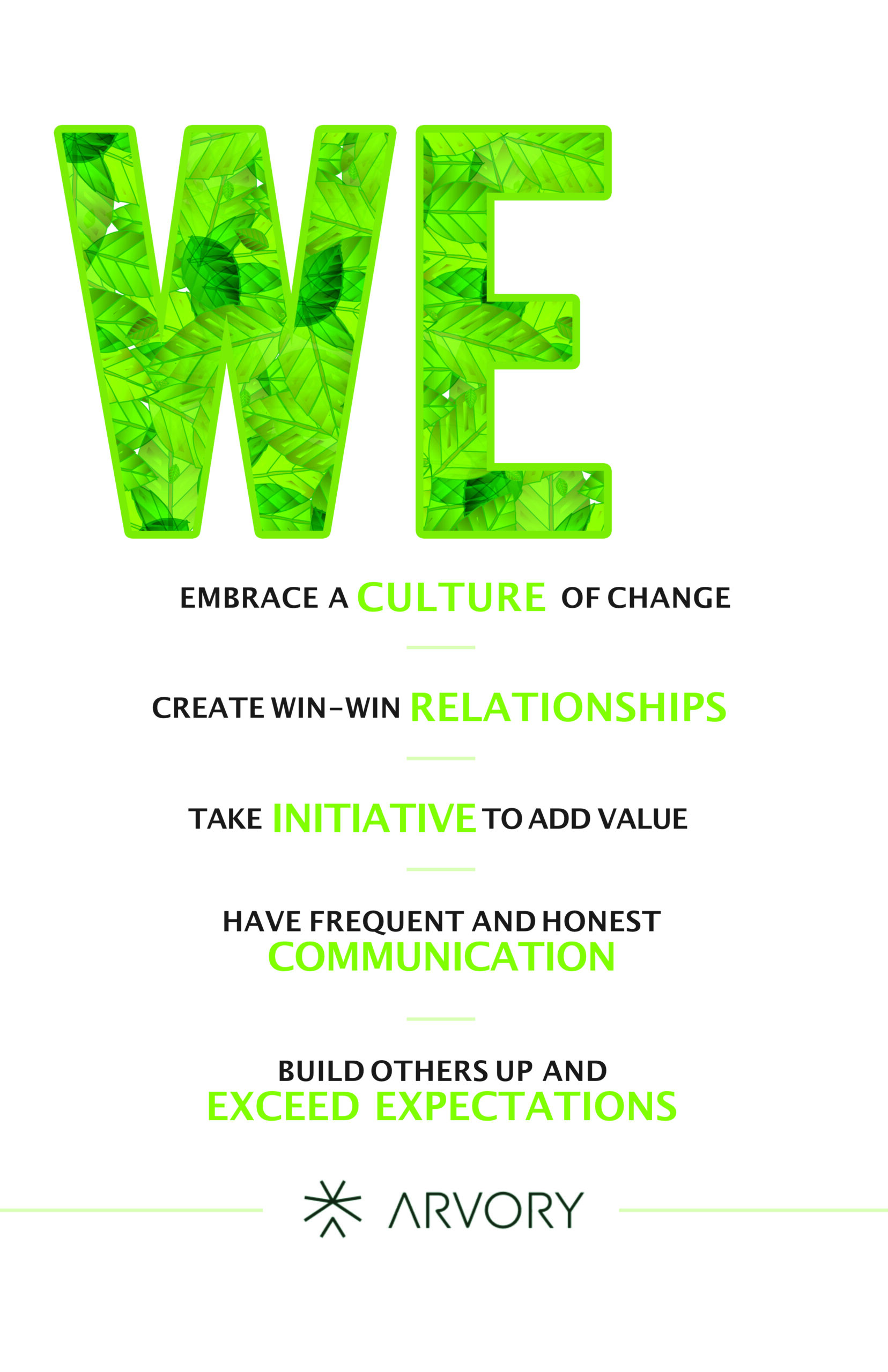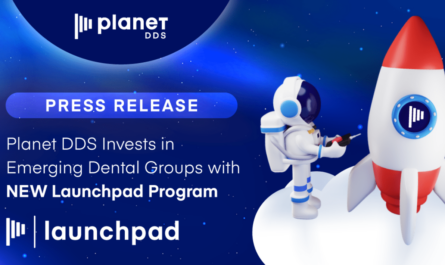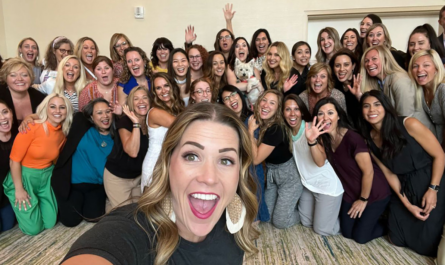Arvory Dental’s business model cultivates freedom while providing centralized services to its practitioners.
By Graham Garrison
There had to be a better way. For Dr.’s Clark Brinton and Seth Huish, the frustrations with the first decade of their careers had risen to a boiling point.
The two friends attended school together at OHSU. After graduation, Dr. Brinton went into public health through the National Health Service Corps but found the inefficiencies hard to deal with. Dr. Huish, meanwhile, was frustrated working at a group practice whose leadership made promises to associates that weren’t delivered.
“What Seth dealt with was the classic thing you see with an associateship, where they promise you the world and then you get there and it’s not as advertised,” Dr. Brinton said. “Then when you’re supposed to buy in, you don’t actually get a true buy-in, things don’t happen on the schedule that was proposed and it ends up being a worse deal. We’ve seen a lot of friends go through that.”
The duo wanted to break free of the traditional mold in a model that could still compete against corporate entities. Established in 2017, Arvory Dental has positioned itself as a hybrid where doctors can have a private practice feel, but with robust support services in the background.
Today, Arvory consists of a Portland, Oregon-based central holding company (the DSO), and nine local practices that each act as individual entities.
Arvory’s model is that of a dentist-centric, patient-centric group, with the efficiencies of the DSO model, but instead of giving a partner dentist, “pseudo or phantom equity,” they receive a legitimate 50% equity in the practice along with all the tax advantages, Dr. Brinton said. “We have the practice pay the bank note off … We look at it as a long-term partnership with the dentist and try to make it a win-win.”
Empowerment
Arvory has a slim management team at the corporate level because they want the doctors to have the space to lead their teams in the office rather than directives coming from the top down. They believe doctors are the natural leaders of dental practices. Thus, when doctors are empowered, things run smoother. “We’ve found dentists are motivated to lead their practices, and they also want to contribute to the organization.”
Arvory’s brain trust meetings and group chat texts among the doctors allow them the space to do that. The monthly meetings cover the business side of dentistry and provide a space for partner doctors to lead the discussion on different topics and contribute to special projects for the group. For example, one tech-savvy dentist is introducing 3D printing in his practice. “Once he gets it perfected, we’ll deploy it out to everybody else,” Dr. Brinton said.
Another doctor with extensive experience in endo led the group through training on it. The brain trust meetings promote a spirit of collaboration. “We let them focus on where their passion is and their expertise,” said Dr. Huish.
A question Arvory often gets is, ‘Why would I give away 50%? Why don’t I just go do this on my own?’ That’s a great question, said Dr. Brinton. “For some personalities, you’re better to go do that, so let’s figure that out before we’re married to each other. If this isn’t the right fit, that’s fine. There are some docs that are alphas and lone wolves, and they need to own it and run it all, and that’s fine.”
What Arvory offers is a place for new doctors to shorten the learning curve. Instead of it taking them 10 years to get to a desired point, Arvory can help them do it in half or a third of the time, “because we’ve already figured out the admin side of it,” Dr. Brinton said. “We know how to run an office. We have built-in continuing education. We can teach you how to get efficient at the bread and butter quicker. We can teach you how to do a treatment plan, how to present treatment to patients, and how to train your team. The value-add is getting you there quicker. Yes, any smart person could get there on their own eventually, but how much is your time worth? We want to accelerate your career through collaboration.”
Worth the investment
Arvory encourages doctors to develop professionally by providing comprehensive resources in three key areas: clinical support, business support and professional development. Through tailored plans, Arvory helps doctors identify their specific needs and goals, and then offers ongoing check-ins and assistance to ensure their growth and success.
Indeed, Arvory is deeply committed to education and personal development. “We really encourage our doctors to get fellowships, travel around, and learn new skills,” said Dr. Huish. “It’s kind of like building a super GP where they’re placing implants, doing ortho, wisdom teeth – they’re doing all these enhanced things that they’re comfortable with. We encourage them to thrive. Patients don’t necessarily like being referred all around, so this enables them to do more within their own office and grow professionally to the top level.”
Arvory has a minimum CE budget of $5,000 per provider per year. “We want them to go spend money on CE,” Dr. Brinton said. “If they make a good case for spending $15,000 to $20,000 on CE in a year, we’ll approve it because it’s an investment. We know we’re going to get the ROI. We’ll see it come back into the practice through the additional procedures that they’re doing.”
The professional investment in Arvory’s doctors has shown clinical benefits, as well as a boost to the culture of the organization. “Staff have a better image of the central company because they see it as one that works through their dentists instead of around their dentists,” Dr. Brinton said. The doctors are more involved in the company-wide initiatives and training programs as a result. “For example, if we decide we’re going to do a laser training for the hygienists, we bring in the dentists first, explain it to them, they go back, they talk to the hygienist, they’re aware of the program, which also brings a better ROI for it because they’re on board,” he said.
Arvory also actively facilitates opportunities for doctors to engage in humanitarian trips, fostering connections with organizations in Hawaii, Mexico, Nepal, and continuously expanding networks, the company says on its website.
The efforts in Nepal have been particularly rewarding. Dr. Brinton said they were recently able to deliver 3D printers, an intraoral scanner and design software to dentists in Nepal. They helped train the dentists and worked with the dental school to develop a new program for students. What started as a humanitarian trip has blossomed into a business partnership. Arvory has hired a couple of the dentists that graduated from the Nepali Dental School as remote designers. Arvory is also working with the Nepali Dental School on a fluoridated toothpaste campaign that both parties are eager to implement.
A collective experience
Despite the freedom and autonomy that Arvory provides its doctors, to compete with large groups in today’s marketplace, economy of scale matters. For instance, Arvory is running an ad campaign in the Portland area at a size and budget that wouldn’t make sense for a standalone office. They can do that corporately for the individual locations while still allowing the doctors to run their practices.
Ultimately, Arvory’s vision has created an “easier lift” for independent doctors still looking to expand their skillset, leadership development, and humanitarian work among like-minded leaders. “We all work in collaboration together to make it happen,” said Dr. Huish. “We’ve all learned. And we put all our collective experiences together to succeed.”


